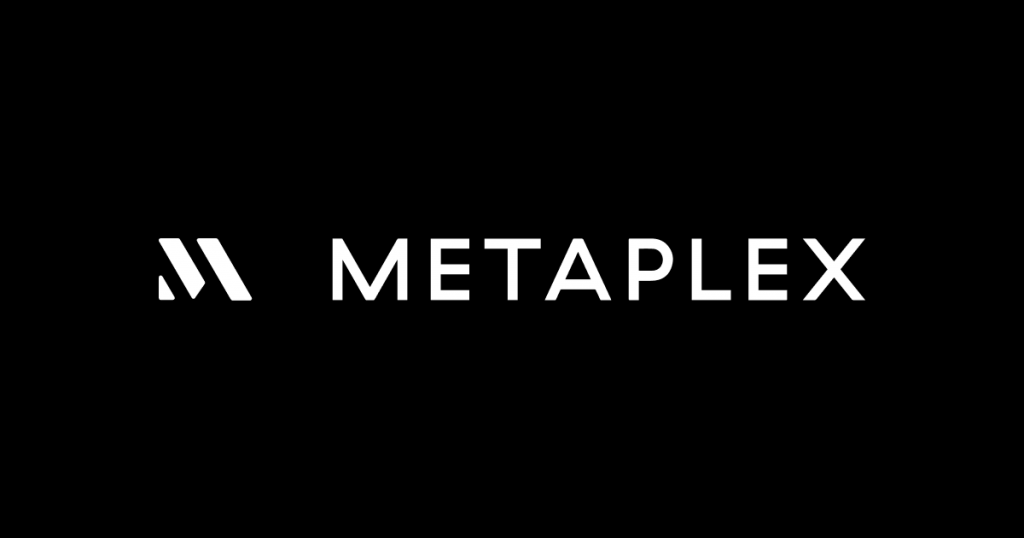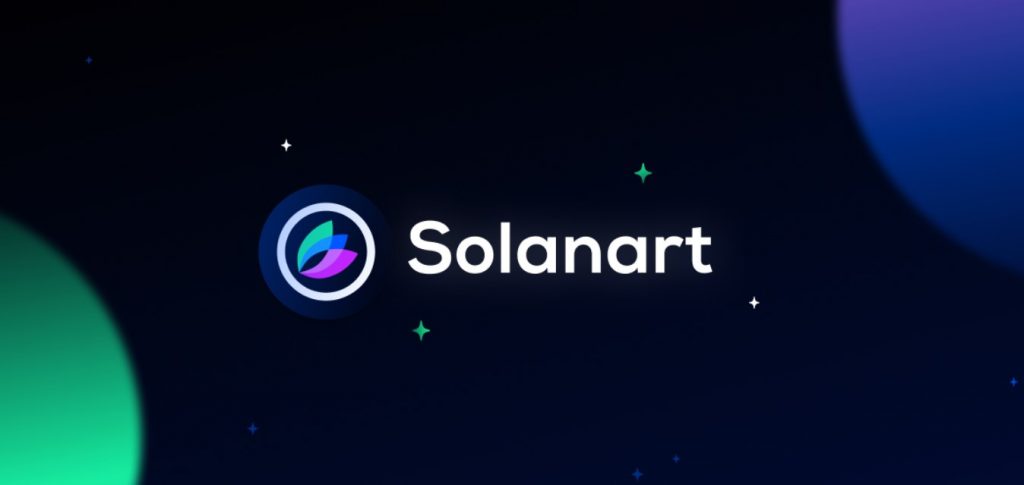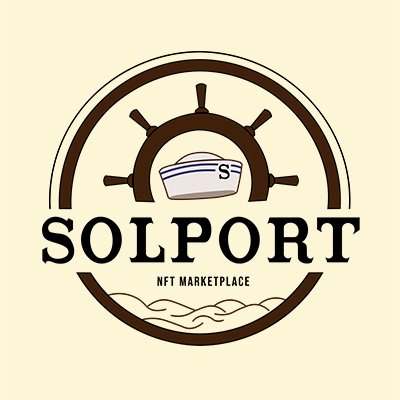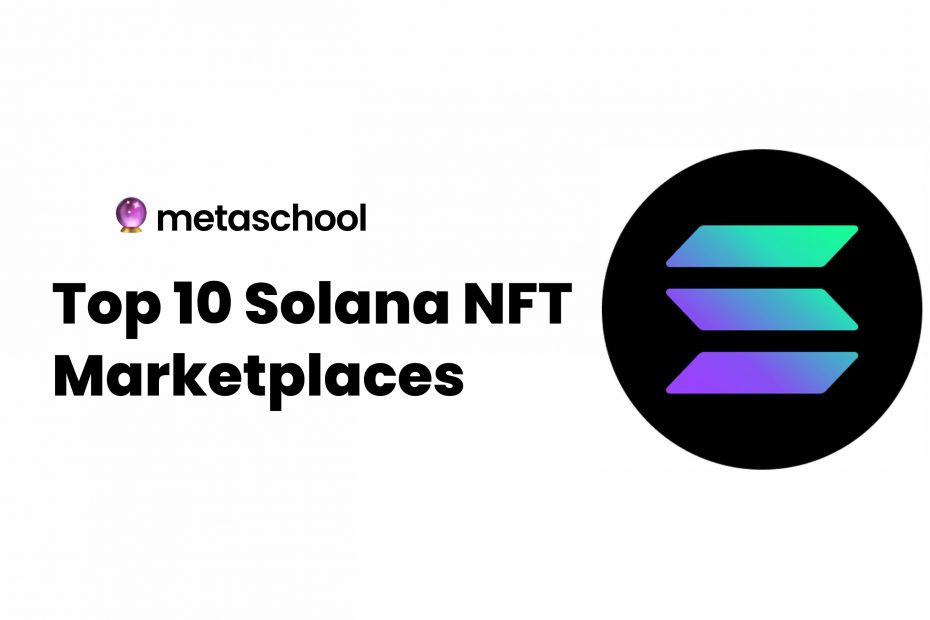Table of Contents
Online marketplaces have been there for quite some time now. However, marketplaces for digital assets are a recent development. In the blockchain ecosystem, these are gaining a lot of popularity and traction. Before we dive right into what the best Solana NFT marketplaces are for 2023, let’s get down our basic understanding of what they are.
What is an NFT marketplace?
An NFT marketplace is an online space where you can sell, buy and exchange online assets. These assets are usually in the forms of tokens – non-fungible and fungible tokens. These tokens can be related to art, music, characters or widgets from a widely-played online game, etc.
There are different types of NFT marketplaces around, btw. It’s important to know the differences between each in order to use them optimally.
Types of NFT marketplaces
Let’s have a look, shall we?
1. Non-curated NFT marketplaces
These marketplaces are available for everyone and anyone. Any user with a digital asset of any sort can register themselves, buy and sell their NFTs. Such a marketplace can also be referred to as mass NFT marketplace.
2. Curated NFT marketplaces
Curated marketplaces, as the name suggests, value and prioritize quality over quantity. They have a proper vetting process in place through which they identify quality artists, approve their work and allow them to sell and buy NFTs. Celebrity art and creations are usually found in such reputed marketplaces.
3. Mass NFT marketplaces
Mass NFT marketplaces are similar to marketplaces selling physical products such as eBay. They have multiple modes of payment and they mostly cater to trading NFTs.
4. Niche NFT marketplaces
Then there are niche marketplaces. They cater to a particular category of NFTs. For example, Axie marketplace is only for NFTs from the famous game Axie Infinity.
Since we’re talking about Solana marketplaces, let’s explore them now.
What is a Solana NFT marketplace?
A layer-1 blockchain, Solana is known for its security, scalability and interoperability.
An NFT marketplace based on the Solana blockchain works just like a simple and ordinary digital assets’ marketplace that allows users to sell, buy and exchange NFTs leveraging its aforementioned features and functionalities. Solana NFT marketplaces have been around for a while now. With time, these marketplaces started gaining popularity.
Earlier we had Ethereum-based marketplaces like OpenSea. Solana has essentially added variety in the platforms for the buying and selling of digital assets.
Moreover, when it comes to NFTs, developing and creating a scalable NFT marketplace can be a bit of a challenge. However, Solana’s features make it an ideal platform to do it on.
Why should you be interested in Solana marketplaces?
If you are someone with some level of interest and experience with NFTs, Solana can be a great platform to create your own marketplace.
Some of its features that might interest you include its cross-chain functionality and interoperability, its low transaction fees and capability to scale itself. Moreover, Solana has also recently gained acceptance and dominance in the crypto community and it is thought as one of the top blockchain networks.
Thus, investing your time and energy building a marketplace on the said blockchain has very few risks but more returns, benefits and learning.
How to choose the right Solana NFT marketplace
If you’re trying to sell, buy or exchange NFTs and other digital assets on a Solana marketplace, here are some important factors to take into consideration.
1. Diversification of NFTs
Diversification of NFTs is an important feature to check for while choosing the right marketplace. A variety of NFTs means a wider audience, more collectors and better buying and selling options.
Moreover, you must also factor in your needs as to what kind of a marketplace you want. If you are into gaming, maybe a diverse or mass marketplace may not be the most ideal platform.
2. Overall user experience
This goes without saying. User experience should always be the priority.
It does not matter how many tokens are sold on a platform within a day if the marketplace is painful and confusing to navigate. Thus, you must always account for that.
3. Integration with the Solana ecosystem
Since we are talking about NFT selling and buying platforms created and deployed on the Solana blockchain, it is important to keep in mind how nicely it is integrated to a blockchain’s ecosystem.
You may ask yourself questions like: Does the platform accept Solana wallets? Are Solana DeFi protocols incorporated into the marketplace?
4. Marketplace security
Security lies at the heart of the whole blockchain ecosystem. Thus, always check for what measures the marketplace has taken to keep user information, property and assets safe and secure.
5. Marketplace support
Digital asset marketplaces for the most part still remain an uncharted territory. Getting stuck somewhere or making the wrong transactions during an NFT exchange is normal. Thus, ensure that the platform has a proper support channel in place for users to contact and resolve their issues.
Top 10 Solana NFT marketplaces
Mentioned below are the top 10 Solana NFT marketplaces with their distinct features:
1. Metaplex
A leading Solana-based marketplace offering a user-friendly interface for NFT trading with a compatible Solana wallet. Metaplex is not just a marketplace. It is an entire ecosystem with different features and tools that assist a developer in NFTs – from minting NFTs to providing a marketplace and then selling the NFTs on that marketplace. Users can easily access and trade verified collections, enjoying the advantages they hold over unverified ones on Metaplex.

2. SolSea
The first ever open NFT marketplace on Solana with integrated minting launched in 2021, SolSea, when it first came out, served as an alternative to its competitor and a well-established marketplace – OpenSea.
It has a user-friendly interface and it meticulously utilizes most of the Solana features. It has a two-pronged approach via which it allows all NFTs minted on Solana to be listed and it allows you to mint NFTs on the marketplace as well. A user can bid on both unlisted and listed NFTs.

3. Solanart
As the name suggests, Solanart, is a marketplace curated for artists and creators to showcase their digital assets, buy and sell NFTs. It got launched in 2017. In order to start selling and buying NFTs on the platform, the users must connect a wallet compatible with Solana.

4. Magic Eden
It is a thriving marketplace within the Solana ecosystem. By utilizing a Solana-compatible wallet, users can engage in NFT transactions on this platform. Magic Eden provides a curated selection of high-quality NFT collections and offers a seamless user experience.

5. DigitalEyes
Yet another popular marketplace, DigitalEyes is one of its kind. In order to carry out NFT exchanges on this platform, you would need a wallet compatible with Solana. Digital Eyes has a section for verified collections and NFTs which will have a leverage over the unverified collections and NFTs. You may find more details on the official website. The typical service fee for this platform is 2.50%.

6. Hyperspace
Considered the largest Solana NFT marketplace aggregator, Hyperspace allows you to track listings from different marketplaces such as Magic Eden without getting redirected. The platform fees is 1%.

7. Coral Cube
Like Hyperspace, Coral Cube is also a Solana NFT marketplace aggregator with most Solana liquidity. Coral Cube is also an automated market maker (AMM). The AMM allows you to sell your NFTs instantly through liquidity pools.

8. SolPort
A platform for both collectors and creators, SolPort helps you list your NFT for an auction along with the usual buying and selling. It has a 2% service fee with proper support channels and a presence on Discord and Telegram.

9. Artz.ai
A decentralized Solana NFT marketplace, Artz.ai ensures that your NFT stays in your Solana-supported wallet until and unless a genuine buyer shows interest in buying the digital asset.

10. Supadrop

Created to empower online digital creators, Supadrop is a community-driven Solana NFT marketplace. It has a community of collectors that are there to support emerging new artists and create a sense of a strong community.
Conclusion…
The Solana blockchain has seen a surge in NFT marketplaces, providing a diverse ecosystem for creators and collectors alike. Some of the top marketplaces on Solana are mentioned above. They offer unique opportunities for NFT enthusiasts to explore and engage with digital art and collectibles.
FAQs
What is an NFT aggregator?
An NFT aggregator is a platform which has multiple NFTs from various platforms listed at one place. Similarly, there is an NFT marketplace aggregator too. Such a platform brings multiple NFT marketplaces together onto one platform. Hyperspace is a great example of an NFT marketplace aggregator.
What is an automated market maker?
In the decentralized realm, an automated market maker (AMM) is an exchange mechanism that mostly operates via smart contracts and liquidity pools. AMM has its own set of mechanisms and specific formulae which determine asset prices within a liquidity pool. It is different from the orthodox ways of trading.
How to sell NFTs through liquidity pools?
To sell NFTs through liquidity pools, follow these steps:
Find an NFT-focused automated market maker (AMM) platform like Coral Cube
Provide liquidity by depositing your NFT and an equivalent value of another asset into the liquidity pool.
Receive liquidity pool tokens representing your share of the pool.
Set a price or list your NFT for trading within the pool.
Users can then buy your NFT using the liquidity pool.
If desired, withdraw your NFT and pooled assets by redeeming your liquidity pool tokens.
